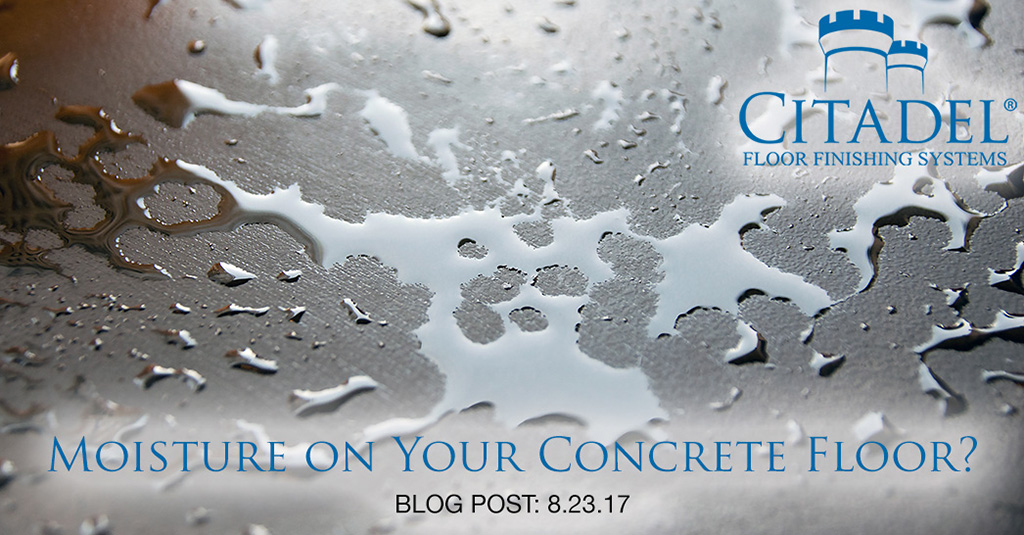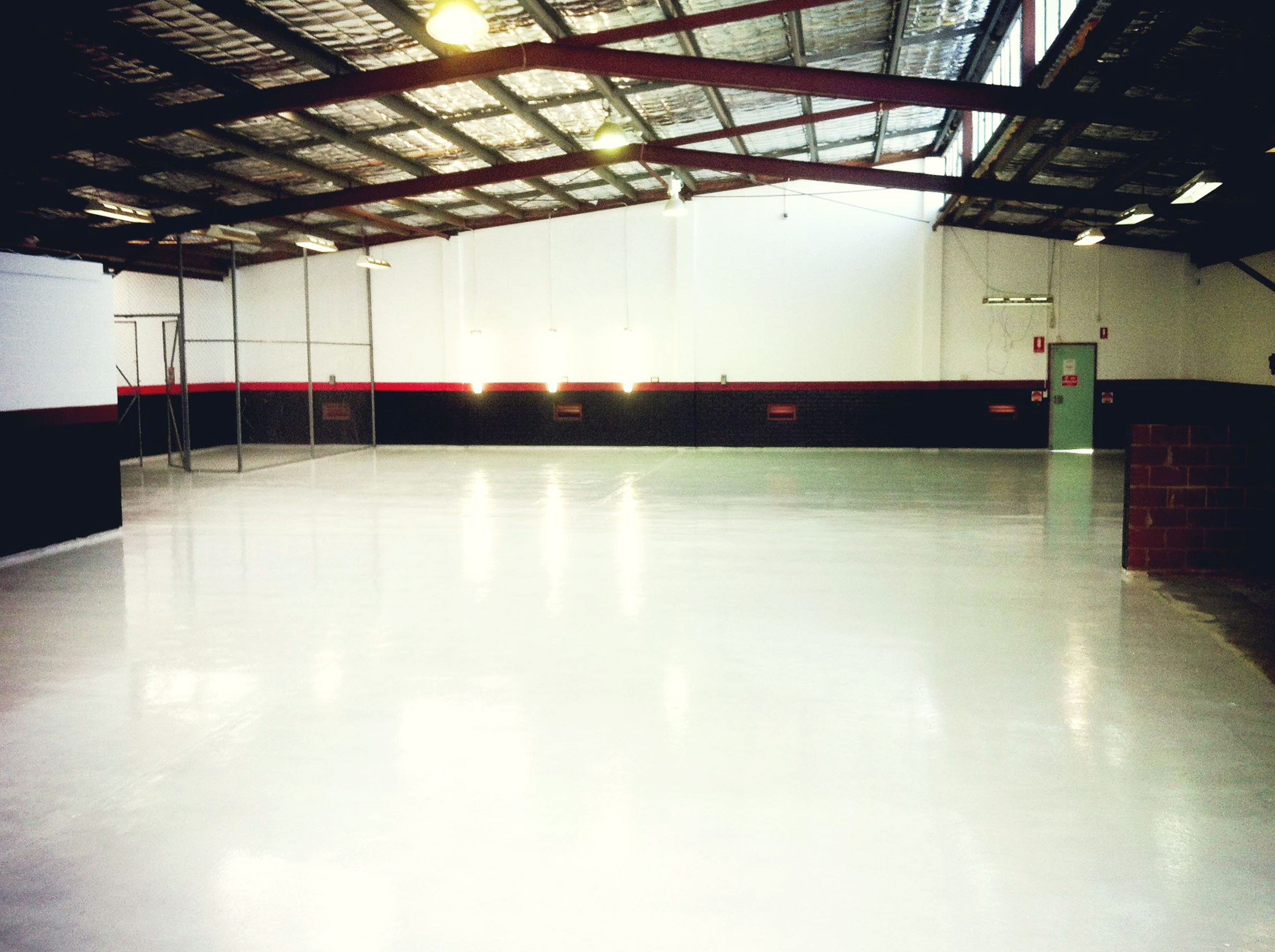Too Much Moisture in your Concrete? Put down a Water Barrier Before Coating

2017-08-23
As any installer, general contractor or building manager familiar with concrete will tell you, and as the American Society for Testing and Materials International (ASTMI) describes in standard ASTM F3010-13, "Moisture permeating from concrete substrates can detrimentally affect the performance of resilient floor covering systems." Or more simply: the number one cause of concrete floor coating failures are moisture.
It's not so much level of moisture as it is excessive moisture vapor transmission (MVT), or the movement of water vapor to the concrete floor's surface.
All floor coatings have a maximum acceptable level of moisture that they can handle without affecting performance. So, what do you do if the test results show too high moisture or MVT than is ideal for the coating you plan to apply?
ASTMI explains, "If pre-installation moisture tests indicate that the moisture level is unacceptable for the specified floor covering to be installed, one option is to apply a topical treatment to the concrete substrate surface to mitigate the moisture condition."
Moisture mitigation is the simple solution to a complex problem: put a water barrier down before adding coatings.
So, the next question is, which water barrier product is the best, to protect your flooring for the long haul? Before you can determine that, you need to do these 3 things first:
1. Test, test, test. You can't tell the moisture level in concrete just by looking at it, and there are several different testing methods available. For a point-by-point comparison of different tests – including our recommendations – check out this article, How to Test for Moisture (and Prevent Costly Flooring Failures Later).
2. Consider the source of the moisture. Test results are your essential and best starting point, but they are only a snapshot in time – so you'll want to evaluate environmental factors before choosing the best moisture barrier for your floor.
As Tom Plaskota, TEC Technical Support Manager writes, "Although concrete absorbs water from the ground, it can also absorb water vapor from the air in humid conditions. Moreover, concrete releases more water vapor when the air humidity is low. These fluctuations in environmental conditions can affect relative humidity levels."
So, consider your moisture test results within the context of the job site's location and typical weather. What conditions will your coating be expected to withstand?
3. Check out best practices.
When selecting which product to apply to the concrete floor, refer to the ASTM F3010-13 standard for moisture vapor barriers. ASTM F3010-13 outlines industry best practices on the properties, application and performance of moisture mitigation systems on high-moisture concrete floors before installing coatings. You'll want to look for primers that meet or exceed this standard.
Now that you are equipped with the specs that your moisture barrier must meet—moisture (MVT) level, environmental factors, and industry standards—you are ready to choose: which moisture barrier to apply?
Herein the lies the rub. There's another decision to make: water- or solvent-based? Topical water barriers fall into these two main categories. In our next article, we'll compare water- and solvent-based primers – and explain when to use which.
Need more information on water barriers? Dealing with a high-moisture concrete floor? Let our experts guide you through the best products for the job at hand. Click here to schedule a detailed consultation.
Latest News
How to Maintain Your Concrete Grinder
Gain Customers and Referrals in 4 Easy Steps
Ready for the Summer Rush? 4 Ways to Prepare
6 Cold Weather Safety Tips for Installers
How to Remove Salt Stains from Concrete
Testimonials
Every time I call I get to talk to someone, and I always have an answer within 20 minutes. That's awesome.
Client: Terry C.

